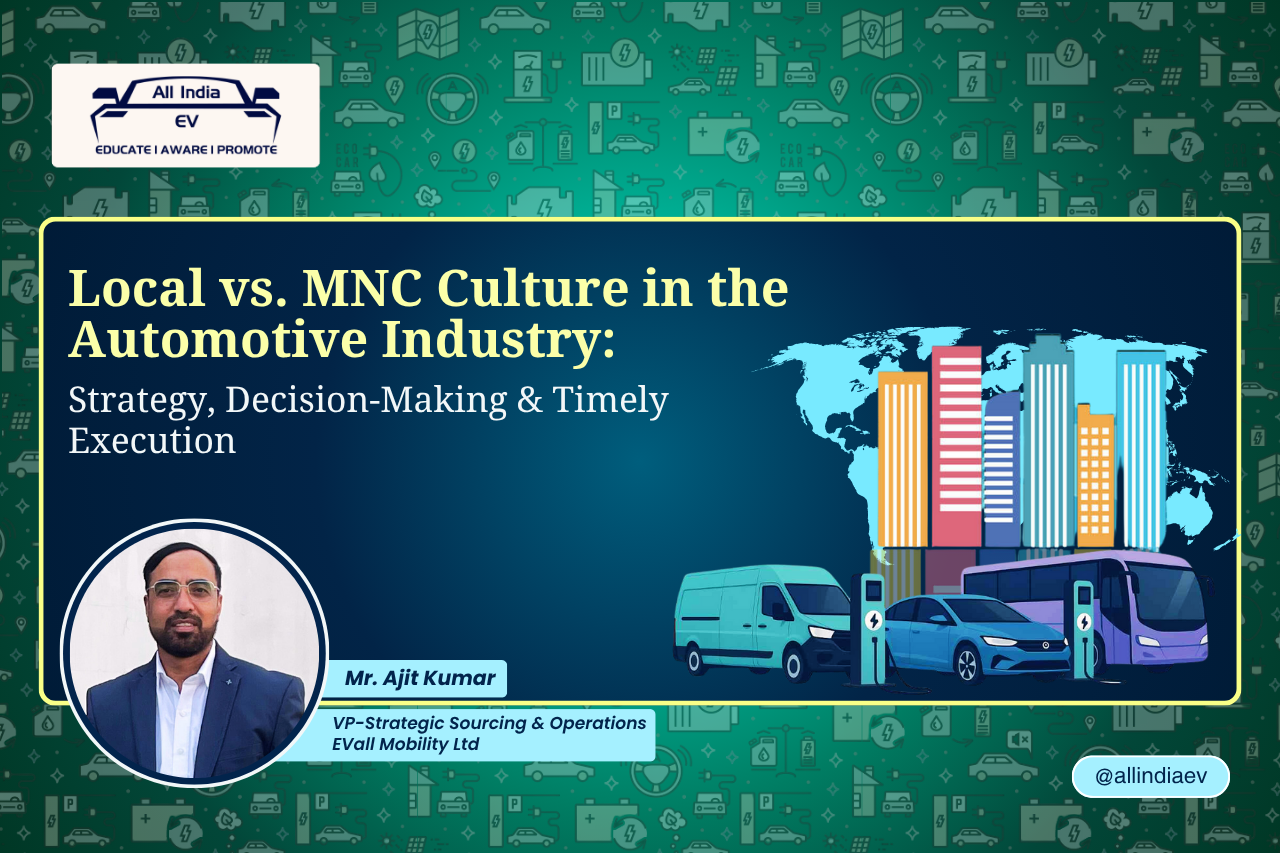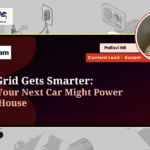
In the automotive sector, where precision engineering meets unforgiving timelines, the cultural and strategic differences between local companies and multinational corporations (MNCs) shape not just how projects are executed—but whether they succeed at all. From tooling investments to supplier selection, every decision reflects a deeper philosophy about quality, speed, and sustainability.
Cultural DNA: Speed vs. Structure
| Aspect | Local Comapnaies | Multinational Corporations-MNC |
| Work Culture | Entrepreneurial, flexible, hustle- driven | Process-oriented, compliance- heavy |
| Team Dynamics | Flat hierarchies, founder-led decisions | Matrix structures, cross-functional teams |
| Communication Style | Direct, informal, rapid | Formal, layered, globally aligned |
| Risk Appetite | High—willing to pivot fast | Moderate risk managed through protocols |
Local companies often operate with a “get-it-done” mindset, while MNCs emphasize governance and global alignment. This contrast becomes especially visible in how each approaches product development and supplier integration.
Strategic Orientation: Market Pulse vs. Global Playbook
· Local Companies:
o Prioritize market entry speed, often at the cost of long-term robustness.
o Strategy evolves with real-time feedback—agile but reactive.
o Innovation is frugal, focused on cost containment.
MNCs:
· Operate with long-term roadmaps and global benchmarks.
· Invest heavily in R&D, tooling, and validation cycles.
· Innovation is structured, with rigorous testing and compliance.
| Decision Factor | Local Companies | MNCs |
| Project Approval | Quick, centralized | Multi-tiered, HQ involvement |
| Vendor Selection | Relationship-driven, flexible terms | Compliance-heavy, globalsourcing norms |
| Change Management | Adaptive, informal | Structured, often requiringglobal sign-off |
Product Quality & Technology Integration: The Hidden Fault Line
One of the most critical—and often overlooked—differences lies in how each type of company approaches product quality and technology integration:
Local Companies & Startups
- Often accept parts “as-is” to avoid tooling investment, leading to poor fitment, inconsistent tolerances, and downstream failures.
- Compromise on specs to meet price targets, especially in early-stage EV startups aiming for rapid market entry.
- Skip validation cycles, relying on supplier assurances rather than rigorous testing.
- Technology adoption is patchy—limited thermal modeling, weak BMS integration, and minimal lifecycle analysis.
This approach may yield short-term gains, but it’s a ticking time bomb. Several startups have launched with compromised products, only to face recalls, customer dissatisfaction, and eventual shutdown. The market punishes shortcuts—especially in safety-critical domains like braking systems, battery packs, and thermal management.
MNCs
- Invest in tooling, jigs, and fixtures to ensure repeatability and precision.
- Follow APQP, PPAP, and DFMEA rigorously to mitigate risks.
- Use digital twins, simulation tools, and predictive analytics for early fault detection.
- Prioritize supplier development—training, audits, and joint engineering reviews.
While this adds time and cost upfront, it builds resilience and brand trust. MNCs understand that in automotive, quality is not a department—it’s a culture.
Case in Point: EV Battery Pack Integration
- A local startup might accept off-the-shelf battery modules with mismatched connectors, skip thermal validation, and launch with a basic BMS. The result? Field failures, overheating, and warranty nightmares.
- An MNC would co-develop the pack with suppliers, run thermal simulations, validate under extreme conditions, and ensure compliance with AIS-156 and ISO standards.
Startups often fall into the trap of:
- Launching prematurely to attract investors or meet grant deadlines.
- Overpromising on specs without backend engineering support.
- Underinvesting in tooling, leading to poor manufacturability.
- Ignoring field feedback, mistaking early traction for product-market fit.
This leads to a vicious cycle: poor quality → customer complaints → rework costs → cash burn →shutdown.
Bridging the Gap: A Hybrid Blueprint
To succeed, especially in emerging markets, companies must blend agility with discipline:
- Invest in modular tooling to balance flexibility and precision.
- Adopt digital validation tools like FEA, CFD, and battery simulation.
- Build supplier capability, not just contracts.
- Create cross-functional “tiger teams” for rapid problem-solving.
Real-Life Examples: Startup Struggles vs. MNC Discipline
1. GoMechanic – Rapid Growth, Rapid Collapse
What happened: GoMechanic, once a promising auto service startup, expanded aggressively across India. However, it collapsed in early 2023 after admitting to financial misreporting and unsustainable operations.
Why it matters: The company scaled too fast without robust internal controls, supplier discipline, or service consistency. Despite investor backing, the lack of operational maturity led to its downfall.
2. BluSmart – EV Ride-Hailing with a Hard Brake
- What happened: BluSmart pioneered India’s first 100% electric ride-hailing service, operating its own EV fleet with no surge pricing and high customer satisfaction. By 2025, it had completed over 25 million rides and scaled to 8,700 EVs.
- Why it matters: Despite its success, BluSmart abruptly shut down operations following a financial scandal involving its leasing partner Gensol Engineering. Allegations of fund diversion and regulatory action led to investor pullout and operational collapse.
3. Tork Motors – Engineering Promise, Market Reality
- What happened: Tork Motors, a Pune-based EV startup, showcased strong engineering credentials and prototypes. However, commercial rollout was delayed multiple times due to tooling challenges and supplier readiness.
- Why it matters: Despite technical capability, the lack of manufacturing scale and supplier integration slowed execution. It’s a classic case of engineering promise not translating into timely delivery.
These examples show that startups often fall into the trap of prioritizing speed, visibility, and investor optics over engineering discipline, supplier integration, and financial transparency. The result? Field failures, reputational damage, and in some cases, complete shutdown.
Conclusion:
In automotive, the road to success isn’t paved with shortcuts. Local companies bring speed and market intimacy; MNCs bring structure and quality. The future belongs to those who can integrate technology, respect engineering discipline, and still move fast.
One of the most critical—and often overlooked—differences lies in how each type of company approaches product quality and technology integration.










